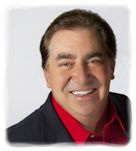|
Once regarded as a cheap stage trick, hypnotism is proven to be a powerful medical treatment, and now it's available on the National Health Service and has been approved by the American Medical Association since 1958 to treat medical many conditions.
There's no magic, no swinging pendulums or swaying watches, and no one is counting backwards as they slump into unconsciousness. This is medical rather than stage or movie hypnotism, and it is increasingly being used to treat the symptoms of diseases and conditions as diverse as asthma, cystic fibrosis, snoring, migraines and warts. It's been used to allow surgery and dental work without anesthesia, and for pain-free childbirth without medication. And new evidence from the UK's first and only NHS centre offering hypnotherapy shows that it's highly effective in treating some types of chest pain as well as irritable bowel syndrome. New research from America has also found that more than half the people who used hypnotherapy to give up smoking were able to kick the habit, while researchers in France have successfully used the therapy to lower blood pressure. Hypnosis has been used for centuries to treat diverse ills, but it went into relative decline with the rise of modern medicine, and in the last 200 years it's been more associated with stage magicians and movie villains than medicine. Filmmakers take a lot of blame for damaging the image of hypnotism: "When a hypnotist appears on screen, expect evil. If his induction features magnetic hand passes, he's probably about to compel someone to commit a crime. If he hypnotizes with an intense stare, his intent is likelier seduction,'' says Dr. Deirdre Barrett of Harvard Medical School, who has studied more than 200 films about hypnotism. At the University Hospital of South Manchester, Professor Peter Whorwell, a gastroenterologist who heads the only NHS funded hypnotherapy centre in Britain, which has been pioneering the therapy as a treatment of irritable bowel syndrome, agrees. "One of the problems is the name,'' he says. "If we started off again with a name like neuromodulation, for example, it would be more readily accepted. The name hypnotism has so much baggage attached. Cognitive behavioral therapy is now reasonably well accepted, and so, too, is psychotherapy, but of the three, I would say hypnotism is potentially the most powerful. It is becoming a treatment of choice for IBS. "When I am dead and gone, people are going to suddenly realize that hypnotism is an incredibly powerful tool and question why it has been ignored for so long.'' Just how it works is not clear, and some critics suggest it's simply a way of relaxing. But practitioners say there's more to it, and that under hypnosis the patient can concentrate intensely on a specific thought, memory, feeling or sensation while blocking out distractions. "The first thing you have to do is get past the myths and misconceptions about clinical hypnosis," says Dr Carol Ginandes who led a study into its use for anxiety at Harvard Medical School. "It's not used for entertainment. There are no Svengali like figures in power dominant relationships. It's not a sleep state or something that someone can make you do. It's a state of heightened, focused attention that we can all shift into very naturally.'' In a report in the Harvard Magazine, she explains how it has an effect: "We don't yet understand the mechanisms by which these suggestions are transplanted by the mind into the language of the body, but let's say someone is a smoker. When he's in a hypnotic state, I could suggest that he's going to find himself craving cigarettes less and less over a period of time. If he's ready to quit, that suggestion will be planted at a deep level in his mind, like seeds planted beneath the soil rather than scattered over the top, helping him tap into some useful physical and psychological resources." SmokingIn a study at the Scott and White Memorial Hospital in Texas, smokers were given eight sessions of therapy over two months, and told to quit smoking one week after beginning the course of treatment. Carbon monoxide concentration tests were carried out on the patients to see whether they had smoked after treatment, and results showed that by the end of treatment 40 per cent had given up. At a followup 12 weeks later, 60 per cent had quit. DentalHypnotherapy is increasingly being used in a number of areas of dentistry, including dental phobia, teeth grinding and extractions and fillings. It has also been used for dental surgery that is usually done under local or general anaesthetic. In one reported case, a patient in Scotland has also had a tooth implant, which involved putting a titanium rod into her jaw. In her case, hypnosis was used to alter the sensation in the areas where surgery was taking place. She was asked to imagine a dial where zero meant no pain. Chest PainsUp to one third of patients who have angina like chest pain are found to have normal coronary arteries, but many continue to suffer painful symptoms despite no evidence of heart disease. Non-cardiac chest pain is a problem because there is little or no treatment. In a new NHS funded trial at Manchester, 28 patients were given 12 sessions of hypnotherapy or a placebo treatment. After being hypnotized, patients were told to focus on the chest, and given repetitive suggestions about reducing pain. Patients were also given a tape of a session and encouraged to practice at home. Results show that of those who had the therapy, eight out of 10 had an all-round improvement in symptoms. Wound HealingResearchers at Harvard Medical School have shown that broken bones and surgical wounds heal faster in patients who have hypnotherapy. Six weeks after breaking their ankles, patients being treated with hypnotherapy were three weeks ahead in their healing schedule than those who were just put in plaster. In a second study, the researchers had similar results with surgical wounds. Before surgery, suggestions were made under therapy on pain and anxiety, and on decreased inflammation, reduced scar tissue, and accelerated wound-healing. Results show the women who had the therapy healed significantly faster. Irritable Bowel Syndrome IBSOne of the most common gastrointestinal disorders, with research showing that between five and 20 per cent of us suffer at some time. Its main symptoms include abdominal pain, diarrhea or constipation. The exact cause is not known, but in some people changes in the balance of bacteria that line the gut are thought to be involved, as well as inflammation. Existing treatment for the condition can be only moderately effective. Research at the University Hospital of South Manchester, where the first trial of hypnotherapy for the condition was carried out, shows that the majority of sufferers can benefit. "We have found that IBS patients treated with hypnotherapy remain well in the long term, with dramatically reduced medication needs,'' say the researchers. Cystic FibrosisAccording to a University of Michigan report, hypnotherapy can reduce symptoms of cough, shortness of breath, anxiety and other symptoms of cystic fibrosis. A study at the Robert C Schwartz Cystic Fibrosis Center at the State University of New York also shows that self-hypnosis can be highly effective. "Many of the patients used hypnosis for more than one purpose, including relaxation (61 per cent of patients), relief of pain associated with medical procedures (31 per cent), headache relief (16 per cent), changing the taste of medications to make the flavor more palatable (10 per cent), and control of other symptoms associated with CF (18 per cent). The patients successfully utilized self-hypnosis 86 per cent of the time.'' ChildbirthResearch at the Women's and Children's Hospital in Adelaide, where hypnosis is used for women in labor, shows it is highly effective. Women who had the therapy, which was given after 37 weeks gestation, used fewer epidurals - 36 per cent compared with 53 per cent in other women. A second study showed that women taught self-hypnosis reduced their need for analgesia by half, epidurals by 70 per cent, and were more than twice as likely to be satisfied with their pain management in labor compared with other women. SnoringAccording to Harley Street psychiatrist Dr Tom Kraft, snoring can be treated with hypnotherapy by suggesting under hypnosis that the sufferer turns on his side every time he begins to snore. "I have reported on the case of a 53-year-old man who came to see me after his snoring led to his wife throwing him out of the bedroom,'' he says. "After I treated him, his snoring went, and he was allowed back in the bedroom, for which he was eternally grateful. After 10 sessions, the patient no longer snored, and when he was followed up later the improvements had been maintained.'' What is Hypnotism?What hypnotism doesn't do is put people to sleep, or make them lose control, or do things against their will. "Many see it as the mind being taken over by the hypnotist and loss of control, which is completely erroneous," says Professor Peter Whorwell at the University Hospital of South Manchester. "As a consequence of this, the whole subject is surrounded by a cloud of mystery." In hypnotherapy, patients are helped by the therapist to reach what's described as a relaxed state of consciousness, like being absorbed in a good book. Therapists may start by describing images that create a sense of security and well being. They may then suggest ways of achieving specific goals, such as getting rid of phobias. Just how it works is not clear. Practitioners say the patient can concentrate intensely on a specific thought, memory, feeling or sensation while blocking out distractions." The Independent - Published 2007 January 30 by Roger Dobson Calming a fussy gut may be possible without drugs, doctors now say. About 15% of Americans suffer from the puzzling digestive syndrome.When a disease is poorly understood, when it's of a distinctly personal nature and when medication doesn't help, there's often little left to do but to suffer in silence.
That's the case for the 15% of Americans - about 25 million people - who have irritable bowel syndrome. Although television commercials and magazine advertisements promise easy relief for a chronically misbehaving gut, many people with the condition know better. The constipation, bloating, diarrhea and gas make their lives miserable, limiting some to short excursions when they leave home at all. Although the pharmaceutical industry is eagerly pursuing new drug treatments for irritable bowel syndrome, these potentially more effective modifications are several years away. Now researchers say the best hope may be the most basic of treatments: lifestyle changes. Experts meeting last week in Los Angeles for Digestive Disease Week, the world's largest gathering of gastrointestinal health professionals, reported that behavior modification and dietary alterations can significantly ease symptoms of the still little understood condition. For example, even a brief, self-help course of cognitive behavior therapy - in which people identify their symptoms' triggers and learn techniques, such as relaxation and thought processes, that can later the response - significantly helped most patients in one study presented at the meeting. Another study found that 12 sessions of hypnotherapy reduced symptoms in many patients for at least one year. The findings support recent theories that irritable bowel syndrome involves a communications glitch between the brain and gut. But experts disagree on whether drugs that act on the gastrointestinal tract or psychological therapies that alter thoughts and emotions will ultimately prove most beneficial. "There is a camp totally focused on the GI tract. But here is also a lot of talk about how we're beginning to understand the mind-body connection," said Dr. Emeran Mayer, director of the UCLA Center for Neurovisceral Science and Women's health. Dissatisfaction with the tow medications currently approved for IBS has led to a resurgence of interest in how patients can help themselves, said Jeffrey M. Lackner, an assistant professor of medicine at University at Buffalo, Sate University of New York. "At this point, there are no drugs that seem to be satisfactory for the full range of symptoms," he said. The real burden of IBS rests on the shoulders of patients on a day-to-day basis." It wasn't long ago that many doctors doubted that IBS was a real disease. Affecting mostly women, the disorder is characterized by chronic abdominal pain and discomfort, bloating, gas, constipation and diarrhea. But there is no injury, infection or inflammation in the gut, which raised doubts about the true nature of the condition. The word "irritable" refers to the reaction of nerve endings in the bowel wall that control muscle function and the sensations of the gut. In people with the disorder, the intestinal tract is highly sensitive, overreacting to normal events such as eating. Specific foods can set off symptoms in many patients, but strong emotions and stress are considered the most powerful triggers. Scientists now believe this hypersensitivity is caused by abnormal levels of certain chemicals that transmit messages between the brain and gut, such as serotonin. "Up until the last 10 years, irritable bowel syndrome was a wastebasket diagnosis. We used to think people were crazy," said Dr. John Johanson, a gastroenterologist at the University of Illinois. "Now we're realizing, ‘Hey, maybe there are some effective therapies out there.'" The discovery of a potential biological explanation for the disorder has let to the development of two prescription drugs that focus on serotonin receptors, Lotronex and Zelnorm. Both medications, however, have been plagued with safety concerns. Lotronex was withdrawn from the market shortly after it was approved in 2000 due to reports of life-threatening ischemic colitis, an inflammation caused by a disruption of blood flow to the large intestine. The drug was re-approved with tighter restrictions in 2002. Zelnorm, approved for women with constipation predominant IBS, was approved in 2002 based on studies showing a modest improvement in symptoms. But the drug was relabeled in 2004 to warn of a rare, serious side effect involving low blood pressure. Zelnorm, too, has been linked with rare cases of ischemic colitis, but there is no evidence that the medication causes the problem. Many patients reject the drug treatments currently available, Johanson said. "Surveys show as many as 70% of patients have tried various medications and less than half are satisfied," he said. A third drug, lubiprostone (Amitiza), was approved in January for the treatment of chronic constipation in adults. A preliminary study presented last week by Johanson showed it appears to be safe and effective in IBS patients whose primary symptoms is constipation. But psychotherapies may work just as well, without side effects, to alter the communication between the brain and the gut. Brain scans demonstrate that people with IBS react differently to emotions and stress. Specific behavioral therapies, Mayer said, can reestablish a more normal connection between the prefrontal cortex, the part of the brain that controls rational thought, and the brain's limbic system, which responds to emotions. "Somehow that control is strengthened during cognitive therapy," he said. Cognitive behavior therapy has long shown promise in helping IBS patients, but it's hard to find therapists who offer it for IBS, said Dr. Robert Sandler, vice president of the American Gastroenterological Association. In addition, the therapy can be expensive and time consuming. In the government sponsored behavior study presented last week, Lackner randomly assigned 59 patients to receive a 10 week, clinic based behavioral treatment; a four session home based program (using a self-study workbook); or nothing. The behavior therapy goal is to learn new ways to think about the disorder and coping behaviors. For example, patients learn muscle relaxation exercises, which can reduce stress, and how to avoid worrying about having an "attack" out in public. Overall, 74% of the patients in 10 week program reported moderate to substantial improvement in symptoms, but so 73% of the patients in the quicker and less costly, four session program. A followup examination of the patients after three months showed the benefits persisted. Those who got no therapy did not improve. "People with IBS tend to think the worst," said Lackner. "That triggers physiological and emotional reactions that aggravate symptoms. Patients need to increase their repertoire of skills so they can effectively take control of their symptoms." The manner in which hypnotherapy works is harder to explain, said the lead author of that study, Dr. Magnus Simren of Sahlgrenska University Hospital in Sweden. In two studies, IBS patients were randomized to a group receiving hypnotherapy, one receiving education and visits from a nurse or no therapy at all. Just over half of the patients in the hypnotherapy group improved while the patients in the control groups did not. "I was afraid patients would think this is hocus pocus, but they were very open to it," Simren said. "I think we need to address [IBS] with different kinds of therapies. We need new drugs. But we should not only focus on drugs." Los Angeles Times - 2006 May 29 by Shari Roan, Times Staff Writer It has been a few days since I have posted about my Zero carb experience. Things have been going well. I did plateau for over a week in weigh loss, but as of today, I am down another three pounds. I have gotten back in the routine of going to the gym again. When I a traveling, I find it difficult to maintain that routine, even of there are opportunities close to where I am. I have really been enjoying lots of different recipes that are totally no carb. I have put some pictures below. I feel great! My blood pressure is down and I do have plenty of energy. I have been really good at getting to bed by 10:00 pm and am usually asleep by 11 at the latest. I notice that I have been sleeping really deep and usually don't get up in the middle of the night to pee even though I am drinking a lot of water and tea. I do really like how my clothes are fitting. Not so tight around the waist. Happy happy. Below are some of the meat dishes I have been enjoying. YUM! I especially like the Texas Sushi. Sausage wrapped in hamburger wrapped in bacon then grilled. Mmmmmmmmmmmm! Creating Your Perfect LifeIdentify Your Perfect Life in Great Detail
Step #1: Identify your perfect life in great detail. Step #2: Write down the list of things that your perfect life would comprise of. (For example, no more commuting to work, no boss, no employees, only working from 1 p.m. to 4 p.m., sleeping until noon every day, living in a five-bedroom house with deluxe décor, owning a huge home-office complete with a private beach, shopping with your wife at a high-end mall twice a week, donating $10,000 a month to the Children’s Society, earning a monthly income of $100,000 after taxes, driving a brand-new BMW 7 series, and so on.) Step #3: Picture what each item would look like if you were an outside observer, watching yourself living or performing the items on your perfect-lifestyle list. See and envision each thing in great detail as if you were in a movie and others were watching that movie of you. Step #4: Constantly see the movie of your perfect life in your mind’s eye or in, the Theatre Of Your Mind over and over again. It’s actually daydreaming with a specific purpose. "What things soever ye desire, when ye pray, believe that ye receive them, and ye shall have them. MARK 11:24. Reread this passage and pay close attention to the difference in tenses. The verbs believe and receive are in the present, but the verb shall have is in the future. The inspired writer is telling us something of the greatest importance by this seemingly minor difference in the grammar of the sentence. If we believe and accept as true the fact that our desire has already been accomplished and fulfilled, that it is already completed, then its realization will follow as a thing in the future. The success of this technique relies on the confident conviction that the thought, the idea, the picture is already fact in mind. In order for anything to have substance in the realm of mind, it must be thought of as actually existing." Take a moment after reading this to simply day dream….with purpose. (adopted from my friend Joseph Murphy; The Power of your subconscious mind) Playing the mental game of manifesting your desires“The waste-not/want-not factor states that manifestation will only occur if there
is a need for it! When there is a need for something, balance occurs in the manifestation process! The problem begins when you wish to manifest something that you want but you do not now need. Your request is unbalanced. It is with these unbalanced creations that you must play a mental game with yourself. This mental game is nothing you haven’t already used in the past to manifest other wants in your life. It’s only that you’ve been unaware of the process. For instance, We tell our clients that if they wanted new furniture (a couch, maybe); The fastest way to get a new couch is to get rid of the old couch. This creates an instant Need vs. Wants balance. However, this concept is not always practical. We don’t want to give up our old car until we have a new car to replace it, so the process of Need vs. Want can take a little longer to balance out and allow manifestation of the new car. In these cases, we have to play a little trick on our minds. We have to reprogram our subconscious. Here’s how the game works! Mentally you must create a positive need for that object. Using an example of a new car to replace your old one, you should imagine the things you would do with your new car that you could not or would not do with your old car. For instance, the pleasure you feel as you drive in a car that is quiet and has great handling ability. The security you would have of it not breaking down. If your desire was materializing money, you could imagine what you would do if you had that money. For instance, you would take your friend out to a fine restaurant, or you could buy yourself a new set of clothes or even help a local organization. The idea is to fill up a mental checklist with enough good reasons that will balance the Creation Mechanism’s waste-not want-not factor. In this way, you will create a positive need for the desired object and avoid creating a negative need, by materializing a lack of something already existing in your life. Now, keep in mind that it may take more than one or two reasons on that checklist to balance the manifestation of your desired object. If you really want this object, you should make sure you have a heap of reasons on that list! It may even help to construct a list and hang it up where you can see it everyday as a mental reminder.” As a Hypnotherapist and Mind Coach one of our main focuses on
clients is of course their habits. The things they do every day or in every situation that no longer suits their needs. These “habits” are usually the thinking and actions that are keeping them stuck. A quick search on Google will reveal dozens of articles from all the top business magazines about the 7, 8 10 even 12 habits of successful people. I found this fun and interesting. Successful people have as many different habits as there are successful people. My advice would be to take out a piece of paper, a new one every day. Start in the morning and write down exactly what it is you are doing. Pay conscious attention to what you do and how much time you spend doing it. Also, write down the negative thoughts about yourself and your life that you hear in your head all day long. Do this for exactly 7 days; Monday-Sunday. Be diligent, be honest and at the end of the 7 days take all those papers and look at what you do. Look at what you are thinking. Then you will be able to clearly see what “habits” you have created in your life. After reading and seeing what you have created, you will be able to make a better conscious decision on what is holding you back. You see, everything you are doing now, if gone unchanged consciously is exactly what you will be doing 6 months from now. The subconscious mind only understands 2 things. Pain and Pleasure. In a nutshell, Pleasure is what the subconscious mind knows and pain comes from what it doesn’t know. So the subconscious mind will plan out into the future so that it knows what to expect and creates that future based on the thoughts and actions you take today and every day. While this is a very light explanation, I am confident that it will make some of you go Ah Ha! If you want changes in your future, you must make those changes today. You may feel pain, your brain may hurt, you may be uncomfortable, but over time, your changes will be your new habits. If you are in the habit of saying “I can’t afford that” or “It’s too expensive”. If you are in the habit of turning down opportunities when they present themselves or never taking action steps to make your life happier, then you can look into the future and see that these will not change. Your daily habits help dictate your future. Choose the best ones. It has been a few days since I updated this blog. It is because I was traveling last Thursday and I started a three day Training seminar that went from 9A-9:45P all three days. Whew! It was and intense weekend trying to go to the seminar, take care of stuff at home and still get to bed by 10 PM. However, I managed it. I was not eating well over the weekend. Not that I began eating carbs or sugar, I just wasn't eating and certainly not on the somewhat regular schedule I had been. That resulted in me plateauing for the past four days. Now that a new week has started, I am hoping that the weight will start coming off again. I have to admit, I had my first cravings for chocolate a couple of nights ago. I did not partake, but the urge was strong. I noticed that it was triggered at about 11 at night while I was laying in bed still awake. I am thinking that going to bed early will save me from a lot of late night snacking and in turn reduce that amount of food intake I have each day.
Today, I did forget to eat breakfast as I really wasn't hungry and my Granddaughter who is almost 5 was very needy for my attention. I made some wings with Frank's Buffalo sauce around 3 O'clock and then I am having pulled pork for dinner a little later. That will be the extend of food intake for today before I make sure I am in bed by 10. Today was a great day! I slept hard all night. I weighed in and lost another half pound putting me at 248.5. for breakfast I had 2 scrabbled eggs over left over pot roast which was both filling and yummy. I had plenty of energy working with several clients. For lunch, there was some leftover rotisserie chicken, so I broke it into small chunks and mixed in some organic mayonnaise and some spices. I went back to work and noticed after my last client at 7:30 PM I really wasn't hungry. I decided to eat about 4 oz of Ribeye for dinner. Again, today I avoided all sugar, processed foods and carbs. I do notice that I drink a lot more water and decafe tea than I usually do.
All in all. I am happy, feel great and full of energy. Oh, forgot to add that I do put a couple of drops for Stevia in my iced tea. I have no cravings for sweet stuff, but it dose create a nice change in flavor. Have a great successful day!! One week ago today was sitting in the living room. The television was off and was contemplating how could feel the "second chin" when woke up that morning. I was also, thinking about all the clothes that no longer fit me and how was generally feeling slow, tired even awkward n my body. I looked down at my chest and belly and noted that I could not see my hips but could see about mid thigh as my belly was in the way. I wore the same two pairs of pants day after day because refused to go buy new ones that fit. I did not want to admit that had gained so much weight and then give in by buying clothes to compensate. I had several shirts that really liked but three of them were clearly too tight to wear and the others were very baggie. I love clothes..great clothes. I love high quality shirts and great fitting jeans and slacks. I am not a big fan of ties but I love wearing a nice blazer and even, occasionally a suit. But alas, nothing I currently had fit. Some people would laugh out loud like the time I was on my way home from work as a police officer, still in uniform and I rear ended a car n bumper to bumper traffic. I am a hypnotherapist. How could I have not used my own skills to keep my weight in check. After all, charge people money who come to me for weight loss.
I can come up with a hundred excuses...and the fact is, I didn't care about my weight enough to do anything about it. I work long hours seated at my desk, helping people who have a large variety of challenges, I study new techniques and read about new studies constantly. I am also active. I go the gym at least three times a week, I walk and sometime go on hikes. I work hard on the property in between clients and I thought I was eating right. My father and younger brother have gotten bigger and bigger over the years, so I thought to myself that I must also be fighting genetics. I craved Chocolate every evening, I craved Sweet all the time, as well as salt. So, I would eat healthy meals then in between, I would seek out candy, chocolate, and "crunchy/salty" snacks. Over the years, I have done so many things to lose weight...from exercise regimes every day to fad diets, cleanses and juices fasts. Nothing really worked and there I was sitting on the sofa weighing in at 259.9 lbs. I felt sad thinking about it. I felt angry at myself. I felt that I didn't have control and perhaps my will power was not as strong as I thought it had been all these years. Then I looked around the room, my eyes moving from one hypnosis book to another that I had been studying. And I thought to myself...Being overweight is a epidemic in this Country...and not only here but is starting to become pretty bad in many other countries as well. So I got up, went to the laptop and began doing some research. I researched for hours. I was reminded about how bad sugar in for our bodies, how high fructose corn syrup seems to be in everything and even vegetables have carbs and fruits have a lot of sugar. I also learned about how much the adrenals impact body weight, blood sugar levels (mine are pre diabetic), blood pressure (mine is always high), cravings etc. I found this doctor who explains it very well. https://youtu.be/SXLSDfs3KlQ I found out that my adrenals were totally stressed and that was causing them to dump cortisol into my system creating belly fat. The stress came from my jobs, relationships, environment, thoughts and of course the way was eating. So that day, I decided that I was going to remove all sugar, processed foods and yes, even carbs from my diet. I thought I would try this for one week to see how I felt, how my body responded and if in fact this was just too extreme for me. I also created a personalized hypnosis script for myself, which I recorded. It addressed no only motivation to loss weight, it also included anti cravings language and especially addressed my endocrine system to relax my Adrenals and insist that they stop producing cortisol and hormones when they are not necessary. Here we are one week later...exactly seven days and I have been perfect on my eating. I have also been going to bed at 10:00 PM every night where in the past I was a total night owl. Today, I feel really great. I have not had a single craving all week, I have been zero carb and zero sugar and I have lost exactly 10 lbs!! I will do a daily update not only to share with you my progress, medical updates the like but also, to keep me honest and on track to my personal goal. My first goal weight is 230 lbs. Lets see how long it will take to get there. Feel free to join me in this journey, Share what you are doing toward your success. Please, if you have any negative comments, feel free to keep them to yourself, because, frankly I don't care. This is about happy, positive physical and mental transformation for myself as well as using what I know, Hypnosis, to create new habits and behaviors in myself as well as others. Oh! As for the title....I intend to go Zero sugar and carbs for at least 100 days! I woke up this morning with George Michael from WAM! singing on the
radio and telling me that “You gotta have Faith” Our religious leaders and coaches tell us that we have to have faith. I tell my clients all the time to have faith. Often the word is used in religious terms and when someone is struggling with a problem they have no solution for. But, what is “Faith”? What does it really mean to have it? Merriam/Webster defines Faith as: 1: allegiance to duty or a person : loyalty b (1): fidelity to one's promises (2): sincerity of intentions 2 a (1): belief and trust in and loyalty to God (2) : belief in the traditional doctrines of a religion b (1): firm belief in something for which there is no proof (2) : complete trust 3: something that is believed especially with strong conviction; especially: a system of religious beliefs <the Protestant faith> — on faith: without question <took everything he said on faith> It is #2 b(1) “Firm belief in something for which there is no proof” that I am talking about when I encourage my clients to have faith. There are many things in life that we cannot see. Some of them we cannot see because we don’t know what we are looking at. Success, Happiness and Prosperity for instance. If you have not really experienced much of any of these in your life you wouldn’t know how they felt, what they looked like or even where to look for them in yourself. Faith is radical trust. Trust in yourself, that you can accomplish your goals in life even if you don’t know where to start in the moment. So, have faith in yourself and what you can accomplish. If you don’t know where to start or you get stuck along the way, ask questions, get a mentor, listen for the answers and trust that you will get the right ones and you will. Martin Luther King Jr. once said: “Faith is taking the first step, even if you can’t see the whole staircase.” |
Ron RB Lake, CHt.Hey Guys! I am taking advantage of the opportunity to provide current, relevant information to help empower you to live a life you love. My main focus will most often be about the world of hypnotherapy as I am reading, studying and learning constantly. However, I will be including fun and interesting tips on a variety of other things that will help you in your life. Archives
April 2016
Categories
All
|












 RSS Feed
RSS Feed